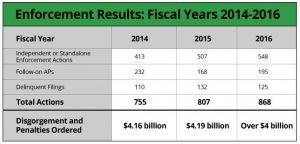 According to BrokerCheck records kept by The Financial Industry Regulatory Authority (FINRA) advisor Clark Gardner (Gardner), in May 2014, was terminated by his then employer Cetera Advisors LLC (Cetera) subsequent to the initiation of customer arbitration claim alleging unsuitable investments. Cetera stated that Gardner was terminated due to undisclosed outside business activities and the sale of unapproved products.
According to BrokerCheck records kept by The Financial Industry Regulatory Authority (FINRA) advisor Clark Gardner (Gardner), in May 2014, was terminated by his then employer Cetera Advisors LLC (Cetera) subsequent to the initiation of customer arbitration claim alleging unsuitable investments. Cetera stated that Gardner was terminated due to undisclosed outside business activities and the sale of unapproved products.
Shortly thereafter on May 29, 2015, Gardner was arrested for converting approximately $1.3 million in client funds by selling promissory notes to clients and depositing the funds into his personal bank account. This activity is alleged to have occurred from November 2011 to April 2014. Allegedly, Gardner used the money for luxury vacation packages, repaying personal funds owed to other individuals, and other items unrelated to the promised investments.
In addition, The Division of Securities for Utah’s Department of Commerce investigated Gardner after receiving a complaint from an investor. During that investigation the department discovered a $150,000 property purchase Gardner completed with an unregistered real estate company that earned him $20,000 in compensation. Gardner is reported to have promised the investor a steady income from the property and a significant return in five years.
 Securities Lawyers Blog
Securities Lawyers Blog










